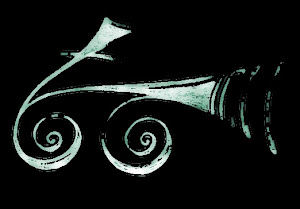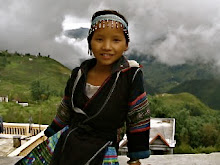But what happens when good intentions are swept away in the flood of ideology? In rebellion against those institutions that have created the war, the suffering, the oppression, and the inequality, many have become the monster they sought to destroy. Have these groups, in their eagerness to help, shaken off the dragon scales of boundless economic growth, only to replace them with the fluff of philanthropy? In the end, the bite might be just the same.
We’ve all heard about the devastation felt by millions as a result of the actions of the oil, timber, and agriculture companies: native lands have been destroyed by roads, pipelines, and clear-cutting; ancient languages and knowledge lost; families broken; poverty and dependency run rampant in regions where people have been booted from their land in the name of economic development. What most of us never hear about is the damage created by nobler efforts.
Take, for example, wildlife conservation. The big conservation organizations, such as World Wildlife Fund, Conservation International, and The Nature Conservancy, are heralded as the saviors of our planet, and are back by millions of corporate and private donation dollars. On the surface, the interests of these groups appear to be in synch with the indigené – humankind’s original conservationists. Yet at the 2004 International Forum on Indigenous Mapping, all two hundred delegates signed a declaration stating that the “activities of conservation organizations now represent the single biggest threat to the integrity of indigenous lands.” (Mark Dowie, Orion Magazine, Nov/Dec issue, 2005).
In the winter of 2007, I witnessed this threat while working with the Emberá of Panama. For hundreds of years the Emberá have inhabited the Darien – one of the most pristine rainforests in the world. In an effort to protect this area against logging, mining, and general development, foreign-aid contractors purchased large tracts of wilderness, and under the management of The Nature Conservancy, created the 1 million acre Darien National Park. The Emberá were promptly informed that they no longer had the right to hunt, fish, or harvest any resources from their native land.
Conservation refugees – groups who are either coerced or forced to leave their homeland for the sake of land and wildlife management – now exist on every continent except Antarctica. The Batwa of Uganda were kicked out following pressure from traditional Western conservationists. Others, like the Maasai in Kenya and Tanzania, or the Karen from Thailand, have been forced to give up their agricultural traditions - practices that have been used harmoniously with the ecosystem for generations. Forced to assimilate into mainstream society, many tribal groups live in squatter camps without running water or sanitation - their cultural traditions disappearing in a few short generations. The numbers of such refugees, estimated by the UN, IUCN, and others, range from 5 to tens of millions. In many cases, indigenous peoples are incorporated into a development plan, working as park rangers (but not wardens), porters, havesters or ecotour guides. Left with no other choice, they are brought into the money economy, yet have little to no say in its implementation or direction. Gradually, they make the shift from strong, self-sustaining communities to the low-ranks of social dependants (Mark Dowie, http://www.orionmagazine.org/index.php/articles/article/161/).
In other words, our benevolent NGOs have decided the best way to protect our planet is to go in, take charge, divulge their knowledge and dictate to the natives the actions necessary for their own well-being and that of planet - regardless of the cultures, traditions, and intimate ecological knowledge of the original inhabitants. For certain, the big-time NGOs have made enormous contributions to the preservation of our planet, and humanity’s awareness of environmental and human rights issues. I don’t doubt their intentions, nor dismiss their accomplishments. Their methods, however, stand to be questioned. Thoroughly educated in the science of the west, they arrive in a foreign land – ready to apply their “superior” knowledge to the jungles of the developing world. Is this preservation or development? Are we the ambassadors of human rights, or sugarcoated missionaries?
This phenomenon is but one example of the clash that is taking place in developing countries around the world – not to mention in struggling communities at home. When we present our solutions, branded with our western perspective, to a foreign community, we immediately discredit their knowledge – a wisdom that has been built up over generations of intimacy with their own land, the hardships and successes of their ancestors, and an understanding of the soul of their culture. Moreover, such action discounts their own ability to resolve local problems. Indigenous and minority groups the world-over have found themselves ravaged by dependency. As a Native American elder stated, “Government aid was the worst thing to happen to our people.” With free handouts, initiative disappears, confidence and self-sufficiency dwindles, and belief in the need for outside help becomes entrenched in the group psyche.
Many of us are eager to contribute to the “global peace movement”. We happily sign petitions, donate our money, and volunteer to build western-styled infrastructure in developing countries. But are we listening to the values of those we seek to help? Are we encouraging them to use their own initiative and traditional knowledge? Are we asking what we can learn from them? If our actions are not based in humility and reverence; if they do not encourage self-sufficiency, pride, and confidence; if they are lead by the torches of arrogance and ideology - they have no more value than the destructive acts of imperialistic governments, free-market advocates, or religious zealots.
Next blog: “The Third Prong”. Casting aside this apparent cynicism, I look towards hope, resolution, and yes, love – the only thing that keeps humankind marching forward.
.jpg)


